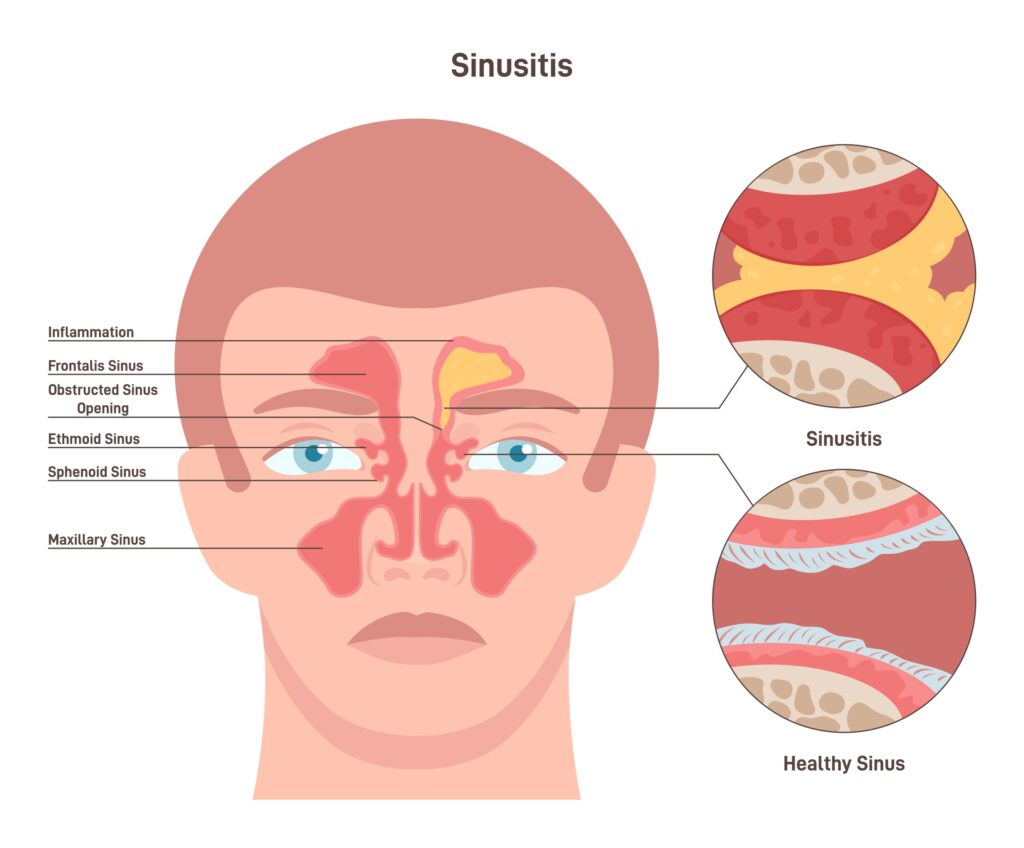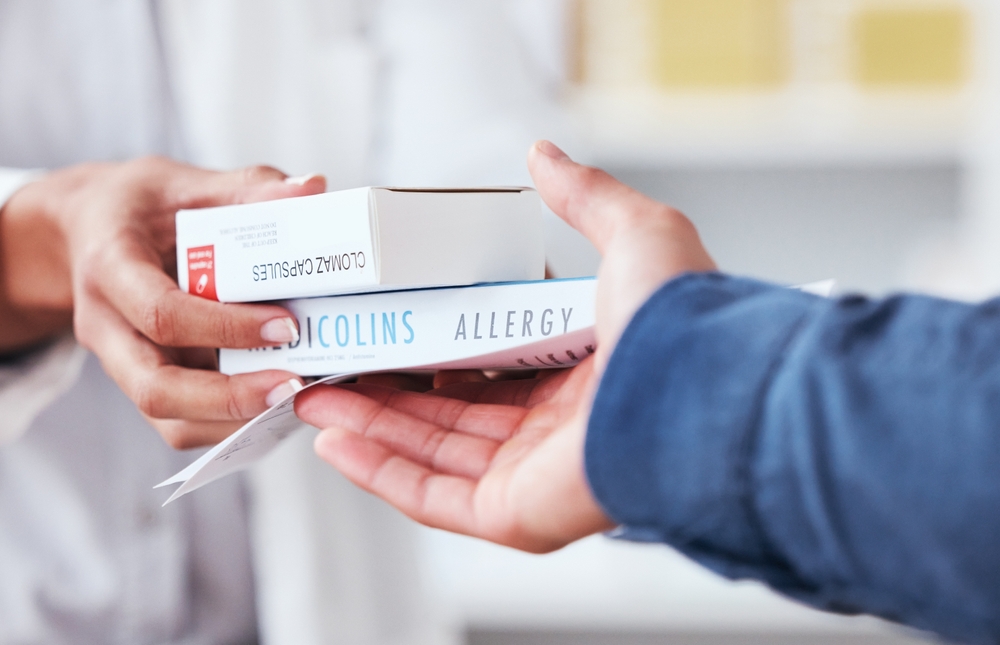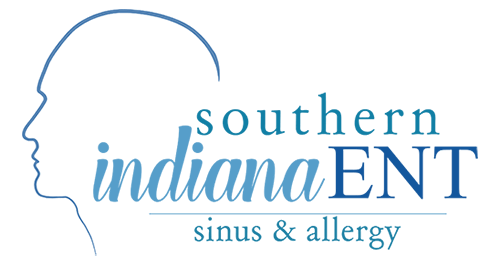
Are you experiencing pain, pressure, and congestion that don’t disappear? You could be among the many diagnosed with chronic sinus infections yearly.
Most sinus infections go away on their own. However, for some people, chronic sinus infection symptoms linger for weeks and resurface multiple times throughout the year.
Keep reading to learn more about chronic sinus infections and if chronic sinus infections come back!
What is a Sinus Infection?

Sinuses are the air-filled spaces behind your forehead, eyes, cheeks, and nose. They’re lined with mucous membranes that constantly produce mucus. The mucus keeps the nose moist.
It also helps trap and expel dirt, bacteria, viruses, allergens, and other pathogens that enter your nose. Typically, mucus drains through the nose or down the back of the throat.
A sinus infection or sinusitis occurs when the lining of your sinuses becomes irritated and inflamed. The irritation can trigger the production of more mucus.
Because the sinus lining is already inflamed or swollen, mucus may get trapped and accumulate in your sinuses. When mucus can’t leave the sinuses, the buildup may create the ideal environment for bacteria and viruses to multiply and cause a sinus infection.
Symptoms of a Sinus Infection
Common symptoms of a sinus infection include:
- Persistent coughing
- Constant feeling of tiredness or exhaustion
- Pain or discomfort in the head
- Aching or throbbing pain in one or more teeth
- Scratchiness or irritation in the throat
- An unpleasant odor coming from the mouth
- Congested nasal passages
- Discomfort in the face, particularly around the cheeks, eyes, or forehead
- Pain, fullness, or a sensation of pressure in one or both ears
- Reduced ability to perceive flavors or odors
- Nasal discharge with a yellow or green tint
- Mucus dripping down the back of the throat from the nasal passages (postnasal drip)
What is a Chronic Sinus Infection?
Sinus infections usually clear up on their own within ten days or less. But sometimes, they last longer.
If you’re still dealing with a sinus infection 12 weeks or longer after it sets in, it’s considered a chronic sinus infection. With chronic sinus infections, your symptoms may sometimes improve, but they don’t go away completely. Instead, they return over and over again throughout the year.
Why Does a Chronic Sinus Infection Keep Coming Back?
Here are some of the reasons chronic sinus infections continue to come back:
Frequent Colds

Catching colds often may lead to the growth of viruses or bacteria that can cause chronic sinus infections.
Allergies
Allergens like pollen that cause allergies can irritate sinuses and result in chronic inflammation. Chronic inflammation or swelling can prevent mucus from draining, ultimately causing sinus infections.
A Deviated Septum
A deviated septum makes it harder for sinuses to drain, which can cause repeated infections.
Nasal Polyps
Nasal polyps are tear-shaped, non-cancerous growths on the lining of the sinuses or nose that can block drainage from your sinuses. Consequently, mucus can build up and cause chronic sinus infections.
Environmental Factors
Exposure to pollutants, chemicals, dry air, or cigarette smoke can irritate your sinuses, causing inflammation or swelling and increased mucus production. This can lead to congestion and sinus infections.
Weak Immune System
People with compromised immune systems are more prone to infections that cause chronic fungal or bacterial sinusitis.
Ways to Alleviate Chronic Sinusitis Symptoms
There are several things you can do to find relief from the symptoms of chronic sinusitis, including:
Stay Hydrated
Drinking enough water can help keep the sinuses moist. It also thins mucus so it drains more easily, reducing congestion. Drinking hot tea can make breathing easier and ease sinus pressure and pain.
Aim for the recommended 8 ounces of water per day. If you struggle to drink enough water, eating tasty, water-rich foods like watermelons, celery, cabbage, oranges, spinach, cucumbers, and strawberries can help you meet your hydration needs.
Don’t Use Nasal Sprays for Too Long
Decongestant nasal sprays reduce swelling, relieving a congested, stuffy nose. However, these should only be used for around three days to prevent rebound congestion.
Rebound congestion occurs when overuse of decongestant nasal spray worsens swelling and congestion instead of improving it.
Get Plenty of Sleep
Getting enough sleep every night is essential to recovery. Sleeping 7 to 8 hours each night will help your body fight infection and heal from inflammation.
Avoid Irritants
Smoke, perfume, and other airborne particles can irritate and inflame your sinuses, worsening sinusitis symptoms. To minimize exposure to irritants, quit smoking if you’re a smoker, avoid second-hand smoke, stay indoors when pollution levels are high, and choose fragrance-free products like household cleaners, lotion, and shampoo.
Use a Humidifier
Running a humidifier in your home can add moisture to the air, making you less congested. The moisture thins mucus, allowing it to drain better.
However, to keep the water free from mold and bacteria, empty the tank daily and clean it before refilling it.
How Do You Treat Chronic Sinus Infections?
If you still wake up groggy with a pounding headache and a stuffed-up nose despite the above self-care tips, it’s time to see an ENT specialist. Your ENT specialist at Indianapolis Sinus Center may recommend the following treatment options, including:
Antibiotics
If a bacterial infection causes chronic sinus infections, your ENT specialist may prescribe antibiotics.
Nasal Sprays
Your ENT specialist may prescribe a corticosteroid nasal spray to relieve rapid inflammation. For a more comprehensive approach, you can also use a nasal spray with a nasal rinse.
Saline Nasal Irrigation
Nasal irrigation, also called sinus rinsing, involves moving a saltwater or saline solution through the nasal passages. Irrigation devices like squeeze bottles and neti pots move the solution from one nostril to another.
Frequently rinsing out your nasal passages and sinuses has the following benefits:
- Flushes out light mucus, bacteria, allergens, and other debris
- Loosens thick mucus so it can be removed while blowing your nose
- Alleviates the symptoms of chronic sinus infections, including congestion, facial pressure, and pain
Allergy Medication

Allergy medications can include antihistamines. Antihistamines block histamine, a chemical the immune system releases when an allergen enters your body.
Histamine increases mucus production and causes inflammation in the nose’s lining, which can lead to chronic sinus infections. Antihistamines clear up irritation, sinus congestion, and other symptoms while treating the root cause of chronic sinus infections.
Immunotherapy
Allergies could be the root cause of chronic sinus infections. When that’s the case, allergy shots or drops (immunotherapy) can reduce your body’s reaction to certain allergens, allowing you to experience long-term relief from chronic sinusitis symptoms.
Surgery
Sometimes, surgery may be necessary to find lasting relief from the debilitating symptoms of chronic sinusitis. The procedure involves inserting a thin tube with a light and camera called an endoscope into the sinuses and using special instruments to remove polyps, diseased tissue, bone, or other tissue obstructing the sinuses.
Your ENT specialist at Indianapolis Sinus Center may also need to widen sinus openings. The surgery reduces blockages in the nasal passages and improves sinus drainage, relieving the symptoms of chronic sinus infections.
Breathe Better Again
You don’t have to be trapped in the cycle of chronic sinus infections. At Indianapolis Sinus Center, our experienced ENT specialists provide expert care for chronic sinus infections to help you breathe easier and bring you relief.
Have your sinusitis symptoms continued persisting? Schedule your appointment today at Indianapolis Sinus Center in Greenwood, IN! Isn’t it time you found long-lasting relief?


